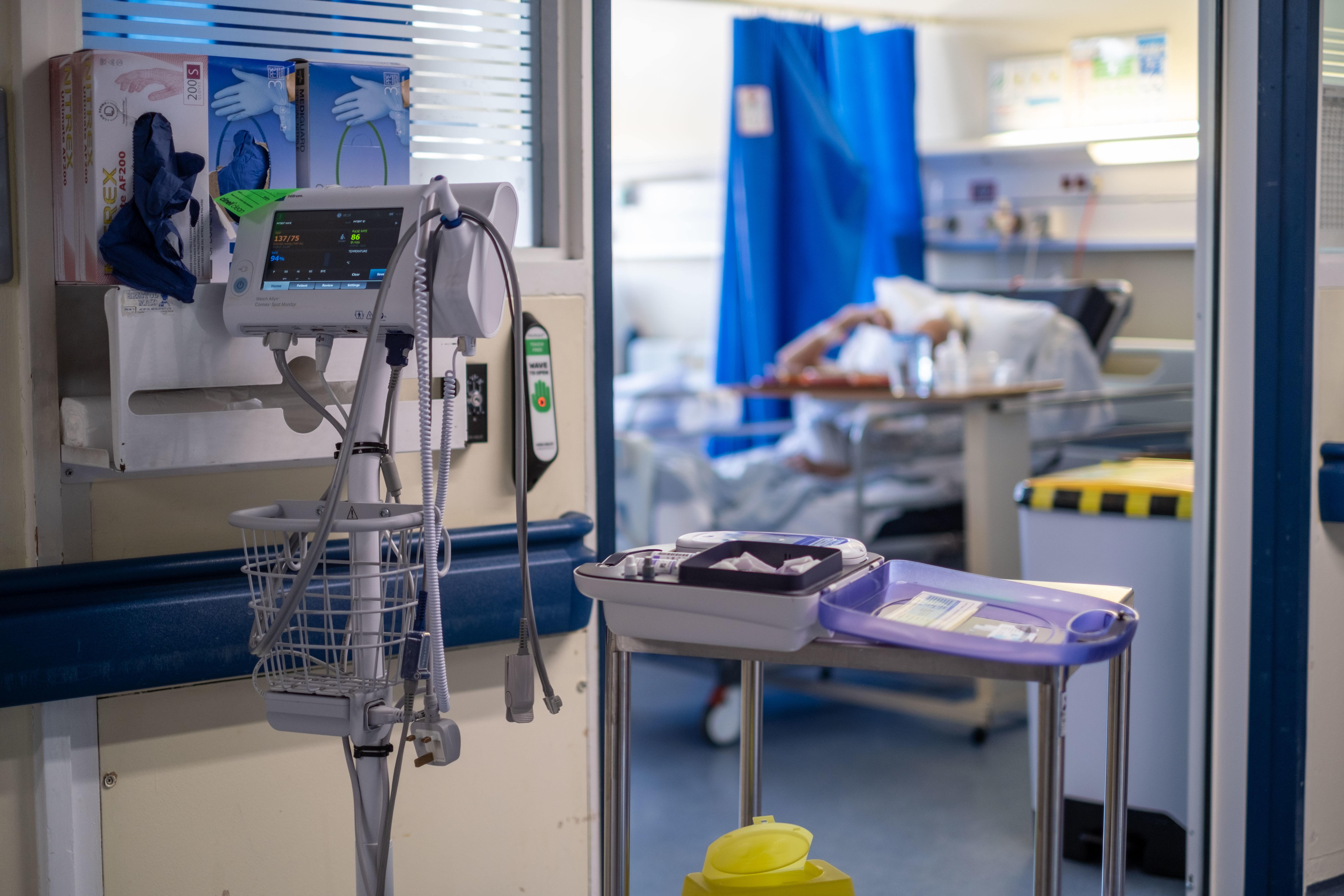Womb transplants for trans women ‘many years off’ – UK surgeon
Professor Richard Smith, from Imperial College London, said ‘currently, there is not technical feasibility’.

Your support helps us to tell the story
From reproductive rights to climate change to Big Tech, The Independent is on the ground when the story is developing. Whether it's investigating the financials of Elon Musk's pro-Trump PAC or producing our latest documentary, 'The A Word', which shines a light on the American women fighting for reproductive rights, we know how important it is to parse out the facts from the messaging.
At such a critical moment in US history, we need reporters on the ground. Your donation allows us to keep sending journalists to speak to both sides of the story.
The Independent is trusted by Americans across the entire political spectrum. And unlike many other quality news outlets, we choose not to lock Americans out of our reporting and analysis with paywalls. We believe quality journalism should be available to everyone, paid for by those who can afford it.
Your support makes all the difference.Womb transplants in transgender women in the UK are likely to be “many years off”, one of the surgeons who carried out the UK’s first such operation on a woman said.
Professor Richard Smith, from Imperial College London, carried out the womb transplant alongside colleague Isabel Quiroga, from the Oxford Transplant Centre, on a woman whose sister was the living donor, in February.
About 50 babies have been born worldwide as a result of womb transplants, which give women missing a functioning womb (also called a uterus) a chance to have a baby.
Experts have previously raised the possibility that the breakthrough could see transgender women also benefit from the operation.
Speaking to the PA news agency, Prof Smith said this was still a long way off.
He said the pelvic anatomy, vascular anatomy and shape of the pelvis are different, and there are issues to overcome with the microbiome – the network of micro-organisms that live in the human body.
“There’s been talk of that, plenty of talk within the press, about that. And we’re very aware that 2010 Gender Equality Act mandates equal treatment for cisgender and transgender women,” he said.
“But that assumes technical feasibility. And in this case, currently, there is not technical feasibility.
He went on: “My own sense is if there are transgender transplants that are going to take place, they are many years off. There are an awful lot of steps to go through.
“My suspicion is a minimum of 10 to 20 years.”
A leading surgeon in the US who established the uterus transplant programme at the University of Alabama said it was “medically possible”.
“I think there’s a lot of providers, such as myself, who would envision that is the case,” Dr Paige Porrett told the MailOnline last week.
“I think that it is certainly medically possible. The future is wide open.
“I think it’ll happen in the future, but there’s going to be a lot more work that our community needs to do to be able to offer that safely.”
But there is the risk that we will rush into this because we have patients who are very interested.
And the chief physician at the University of Gothenburg in Sweden, who helped deliver the first live birth from a transplanted uterus in 2014, said he regularly gets email inquiries from males.
“I get emails from people all over the world,” Professor Mats Brannstrom told Euronews Next in February this year.
“But there is the risk that we will rush into this because we have patients who are very interested.
“I say to them we haven’t done enough research, but I think it will be possible in the future. It may take five or 10 years, I would say.”
“If it’s an efficient method with no risk, I don’t think there are any ethical boundaries,” he added.
“We change the legal statutes, we do corrective surgery for other things in the body. So this is part of it.”
A medical paper published in January this year said “several teams” were working to make the procedure a “clinical reality” for transgender women.
The report, published in the Fertility and Sterility medical journal, said: “The first uterus transplant in a transgender female in the twenty-first century is anticipated to take place within the next few years, if not sooner.”
The authors said the differences in shape of the pelvis in men and women were “easily surmountable” but most challenging was linking the transplanted uterus to the vagina constructed during gender reassignment surgery and also the “effects of an altered microbiome”.